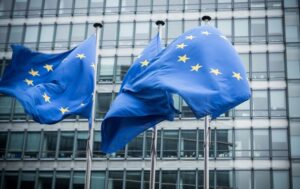
European leaders and industry circles have reacted strongly to US President Donald Trump’s announcement that he will impose 30% tariffs on imports from the EU from August 1, a significant increase on the current 10% base rate, according to Euractiv.
According to the publication, the decision has caused outrage among EU member state leaders, who are calling for an immediate and tough response from Brussels. European diplomats will hold an emergency meeting on Sunday to discuss measures
Bernd Lange, chairman of the European Parliament’s Trade Committee, called Washington’s actions “arrogant and a slap in the face” and said that countermeasures should take effect as early as Monday.
French President Emmanuel Macron called on the European Commission to resolutely defend the EU’s interests if no agreement is reached by August 1.
Spanish Prime Minister Pedro Sánchez noted the strength of the single market, while Italian Prime Minister Giorgia Meloni expressed hope that escalation could be avoided.
Hungary criticized the European Commission, saying that tariffs should have been lowered after Trump’s return.
Meanwhile, representatives of European industry are warning of serious consequences of the new tariffs. The Federation of German Industries (BDI) called Trump’s statement “an alarm bell” and called for a quick solution to avoid further escalation. According to official data, German exports to the US have already fallen to their lowest level since March 2022,” the statement said.
The food industry, particularly the wine sector, is particularly affected. The Italian wine association UIV said the new tariffs could lead to an embargo on 80% of Italian wine exports to the US. “This is the darkest page in the relationship between two historic allies,” said UIV President Lamberto Frescobaldi.

Preferential roaming between Ukraine and the EU will remain available until the end of 2025, according to the National Commission for the State Regulation of Electronic Communications, Radio Frequency Spectrum, and Postal Services (NCC).
According to a statement on its Facebook page on Wednesday, the NCCIR and the European Commission confirm the extension of the Joint Statement between Ukrainian and European operators on ensuring roaming for Ukrainians in the European Union for the next six months, until December 31, 2025.
It is noted that this is the sixth extension of the agreements, which have been in force since April 2022.
“Staying connected is a basic need that becomes critical in times of war. Since the first days of the full-scale invasion, the NCCIR has been working to ensure that Ukrainians remain connected, including abroad,” said NCCIR Chair Lilia Malyon.
“The joint statement has become an exceptional and effective tool. I am grateful to Ukrainian and European operators who continue to provide favorable conditions for Ukrainians, as well as to colleagues from the EC and BEREC for their support and joint work. Our team continues to move confidently towards a Single Digital Market for roaming in the EU,” Malion added.
In addition, the joint statement also provides favorable communication conditions for EU citizens in Ukraine.
The press service also reminded that the NCC team, together with colleagues, is completing work on Ukraine’s accession to the EU’s single roaming area “Roaming Like at Home” (RLAH), which is expected as early as January 1, 2026.
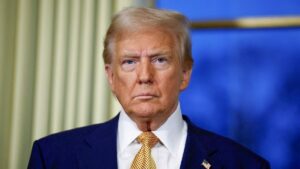
According to a column by Caroline de Gruyter published on EUobserver, circles close to Donald Trump’s administration are preparing a strategy to change regimes in EU countries through active support for far-right movements in Europe.
The Geneva-based analyst claims that Washington intends to use parties such as the AfD in Germany, PiS in Poland, and Patriots for Europe to weaken Brussels’ position and “turn Europe into a vassal of the US.” According to EUobserver sources, the White House is already providing “geopolitical and financial support” to these movements.
EUobserver is a European publication focusing on EU politics. The original article is a column by Karolina de Grutter.
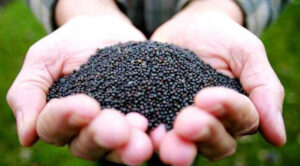
Ukraine exported 3.14 mln tonnes of rapeseed in the season-2024/25 (July 2024 – June 2025, marketing year, MY), down 15% compared to the previous marketing year and the lowest for the last three seasons, APK-Inform news agency reported.
The main reason for the decline, analysts said, was the decline in the oilseed harvest in Ukraine for several years in a row.
The experts pointed out that almost 89% of the total exports of rapeseed were to the European Union (91% in 2023/24 MY), or 2.78 mln tonnes, down 17% compared to 2024/25 MY. In terms of countries, the top three importers of Ukrainian rapeseed were Germany with the volume of over 1 mln tonnes (-18%), Belgium – 899 thsd tonnes (up 2.4 times), and the UK – 334 thsd tonnes (up 2.5 times).
“In the new season-2025/26, the downward trend of rapeseed exports is likely to continue, due to the expected minimum harvest of the crop in the last 4 years, as well as the possible introduction of the export duty for the oilseed, which is currently actively lobbied,” – the analysts said.
APK-Inform forecasts that in 2025/26 MY the exports of rapeseed from Ukraine will decrease by another 15%, to 2.7 mln tonnes.
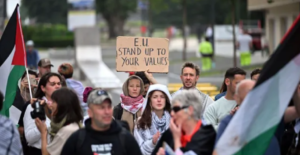
For the protesters waving Palestinian flags outside EU buildings in Brussels, it was the moment that everything might change.
An EU report presented to foreign ministers had found there were indications Israel had breached human rights obligations under the EU-Israel Association Agreement, ahead of Thursday’s European Union leaders’ summit.
The European Union is Israel’s biggest trading partner, and the protesters were demanding that the EU suspend its 25-year-old trade accord over Israel’s actions in Gaza.
But their hopes that EU leaders would agree to suspend the agreement with Israel were soon dashed, because despite the report deep divisions remain over the war in Gaza.
The protesters have been backed by more than 100 NGOs and charities.
In 20 months of Israeli military operations more than 55,000 Gazans have been killed, according to the Hamas-run health ministry. Another 1.9 million people have been displaced.
Israel also imposed a total blockade on humanitarian aid deliveries to Gaza at the start of March, which it partially eased after 11 weeks following pressure from US allies and warnings from global experts that half a million people were facing starvation.
Since then, the UN says more than 400 Palestinians are reported to have been killed by Israeli gunfire or shelling while trying to reach food distribution centres run by a US and Israeli-backed organisation. Another 90 have also reportedly been killed by Israeli forces while attempting to approach convoys of the UN and other aid groups.
“Every red line has been crossed in Gaza” Agnes Bertrand-Sanz from Oxfam told the BBC.
“Every rule has been breached. It really is high time that the European Union acts.”
As the report was made public, it fell to foreign policy chief Kaja Kallas to explain what the European Union would do next.
The EU’s first goal would be to “change the situation” on the ground in Gaza, she said. If that did not happen, “further measures” would be discussed next month on how to suspend the association agreement.
“We will contact Israel to, you know, present our finding,” she stumbled in an uncharacteristically faltering manner. “Because that is the focus of the member states, to really, you know… be very, very sure about the feelings that we have here.”
NGOs said the EU had missed an opportunity to take action and that the response was feeble.
The Israeli foreign ministry called the review “a complete moral and methodological failure.”
For some of the EU’s critics, the episode was a vivid example of how the EU can talk a good game about being the biggest global humanitarian aid donor to Gaza, but badly struggles to present any coherent or powerful voice to match it.
As the world’s biggest market of 450 million people, the EU carries great economic weight but it is not translating into political clout.
“The fact that European countries and the UK are not doing more to put pressure on Israel and to enforce international humanitarian law, it makes it very difficult for these countries to be credible,” said Olivier De Schutter, the UN’s Special Rapporteur on human rights.
“War crimes are being committed at a very large scale In Gaza, there is debate about whether this amounts to genocide, but even if there’s no genocide there is a duty to act.”
De Schutter fears the EU’s soft power is being lost and its inaction makes it much harder for it to persuade to countries in Africa, Asia in Latin America to back Europe on condemning Russia’s war in Ukraine, for example.
Israel maintains it acts within international law and that its mission is to destroy Hamas and bring home the remaining hostages taken when Hamas attacked Israel on 7 October 2023. About 1,200 people were killed in the attack, which triggered Israel’s offensive on Gaza.
As a union of 27 countries, the domestic political reality in Europe makes it unlikely that EU leaders will back the views of the majority of member states on Gaza.
Eleven EU countries have recognised Palestine as a state, and among them Ireland, Spain, Belgium, Slovenia and Sweden had pushed for the European Union’s agreement with Israel to be suspended.
At the heart of the EU’s foreign policy decision-making in Brussels is the fact that decisions have to be unanimous, and so just one dissenting voice can block the EU from taking action.
In this case Germany, Austria, Hungary, Slovakia and the Czech Republic are all opposed.
Austria hopes the EU’s review will spark action, but not necessarily a suspension of the treaty with Israel.
“Everything I’ve heard in this regard will not help the people in Gaza,” said Foreign Minister Beate Meinl-Reisinger. “What it would however cause is a deterioration, if not a complete breakdown of the dialogue we currently have with Israel.”
Germany’s position on Israel has often been shaped by its role in the Holocaust and World War Two.
Chancellor Friedrich Merz says the “current level of attacks on Gaza can no longer be justified by the fight against Hamas”, but he has refused to consider suspending or terminating the agreement.
Slovakia and Hungary are considered more closely aligned politically to Israeli prime minister Benjamin Netanyahu than many other EU countries.
Among the key players advocating tougher measures against Netanyahu’s government is Ireland.
Its foreign affairs minister, Simon Harris, condemned the EU’s handling of the review.
“Our response in relation to Gaza has been much too slow and far too many people have been left to die as genocide has been carried out,” he said.
Israel rejects the charge of genocide and when it closed its embassy in Dublin last December it accused Ireland of antisemitism.
Europe has recently found itself sidelined by Washington on big global issues, notably Ukraine and Iran – with President Donald Trump in favour of direct talks with Russia’s Vladimir Putin and Israel’s Benjamin Netanyahu.
The US may not be in listening mood, but on Gaza the EU has struggled to muster a unified voice on Gaza, let alone make it heard.
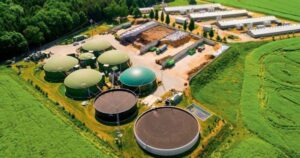
On Tuesday, June 24, Horodyshche-Pustovarivska Agrarian Company LLC (GOPAK), a member of the Hals Agro agricultural holding, exported biomethane of its own production for the first time, the industry publication ExPro reported.
According to the publication, the company exported almost 73,000 cubic meters of biomethane stored in Ukrainian underground storage facilities via the gas transportation system through Hungary. The buyer was German Uniper.
Thus, Hals Agro became the third exporter of biomethane, joining VitAgro and MHP.
“Hals Agro is a Ukrainian holding company specializing in grain and sugar production, turkey farming, and meat production. It also produces electricity from renewable energy sources and has four biogas complexes in
Kyiv and Chernihiv regions. The total design capacity is 14.7 MW of green electricity generation.
“Since 2021, Hals Agro has launched two biomethane projects, and in 2023 launched the production of the first industrial biomethane at the Lynovytske Biogas Complex.
Ashroholding has a biomethane plant in Chernihiv region with a capacity of 3 million cubic meters per year. In November 2024, it started pumping biomethane into Ukrainian underground gas storage facilities.